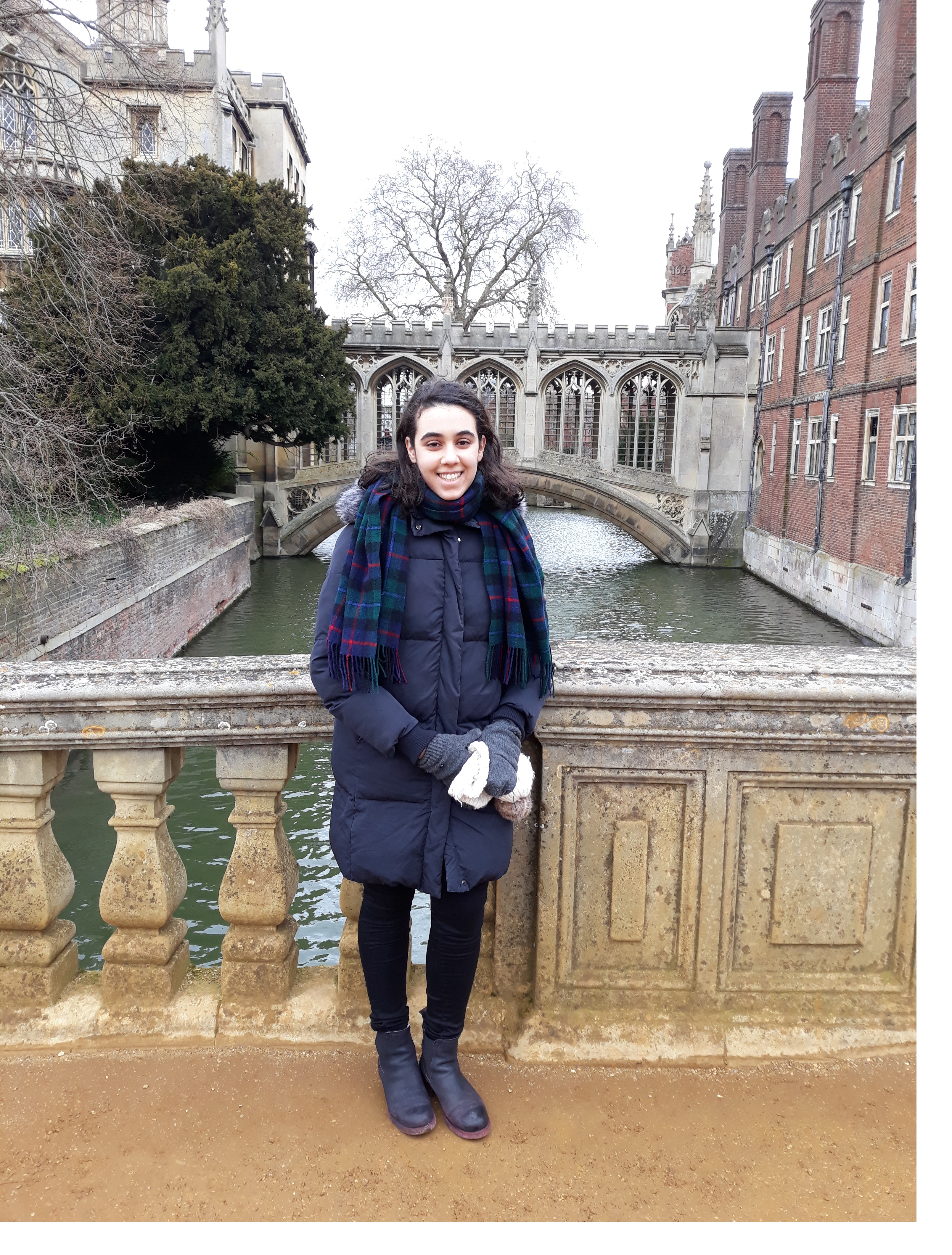
Anissa is from Lakatameia in Cyprus, and wrote this at the end of her first year studying Medicine here at Christ's College, Cambridge. At school, Anissa did International A levels in Biology, Chemistry, Physics, and Mathematics.
What attracted you to your course?
I was attracted to Medicine at Cambridge because the course here offers a depth of science, this being its core focus for the first three years. I felt I would enjoy the course more as I would gain a greater scientific background initially. This would then allow me to better understand the conditions of patients I encounter in clinical practice. The course here was also attractive because of its essay component. Medical students here have weekly essays, the quantity of which varies depending on the College. Essays were very attractive to me at the time of applying (they still are something I truly enjoy), because they allow you to further explore topics beyond the lectures. You can also further discuss essay topics with supervisors which is a very interactive way to learn medicine. The dissection component of anatomy here at Cambridge is also something that made me interested in the course as I knew that the best way to learn about the human body is from the human body! Overall, the course is a very well-balanced mix between lectures, lab work, dissection and patient contact.
Was there anything different about it compared to similar subjects at other universities?
The division into three years of pre-clinical and three year of clinical medicine is one of the unique features of the Cambridge course: the first three years are more scientifically oriented, while the final three are more patient oriented. However, we still get patient contact in the first three years! During first year we visited patients in their local GP and patients in their home. Now, heading into my second year, we will be doing one week in clinical placements in a hospital getting even more patient contact. Thus, even though we are in the pre-clinical years of our degree, we still get taught how to interact with patients.
Cambridge also has dissection that is performed by the students themselves during anatomy. This, in my opinion, is an integral part of the course: the understanding of the human body and its intricate anatomy.
Another difference of the Cambridge medical course are the essays that I mentioned above. Weekly essays often require a complete understanding of the lecture material and also some extra reading, these are then discussed with the supervisors and feedback is given.
Was there anything that you were nervous about before you started the course?
I was nervous about everything! Starting university and a medical degree at Cambridge can feel very daunting at first. I was aware that I would have to adapt to university-level study, which is certainly different than A-Level study. The fact that the course was very demanding, with a lot of science and also the numerous deadlines, and the amount of essays that I had to write, seemed overwhelming at first. However, I then realised that these feelings were normal. After all, moving abroad and starting university is a huge change in life, and I realised that everyone around me felt this way at some point - these feelings were a sort of ‘rite of passage’! Having so many knowledgeable supervisors, lecturers who were always excited to answer questions after lectures, and an overall supportive environment helped me adapt quickly.
I now know that after you put in the right amount of work, there isn’t much to be nervous about. Consistent studying, asking questions when you have them and being excited about the course helps the year to run smoothly. In general, I strongly believe that if you love this course and have passion then it will love you back! Sometimes being stressed is normal, but good planning helps to avoid that. Of course, College supervisors and the College tutor are always available to help!
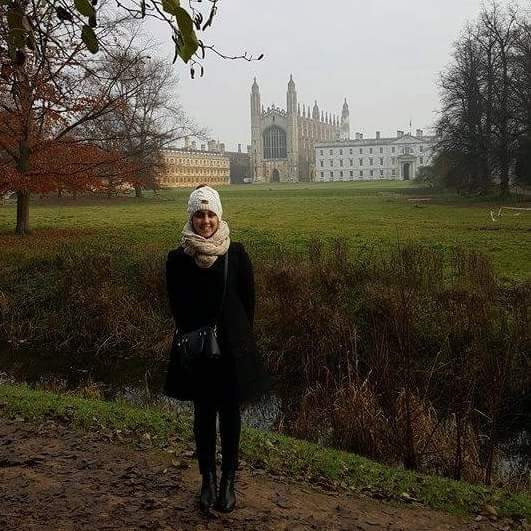
You applied to another College but were given your place at Christ's via the Winter Pool. What was that like?
At first, when I got my offer I didn’t even realise that I had been pooled - I was simply too excited to have an offer from Cambridge! After finding out that I had been pooled to Christ’s I was more than happy and truly looking forward to my first year. I am actually very glad that I was pooled because Christ’s is lovely! The medics here are wonderful and everyone around College is very friendly. Christ’s turned out to be the perfect College for me.
Christ’s has numerous advantages. Being in such a central College has definitely made first year a lot easier in terms of going to events, talks that are relevant to my course, or meeting up with friends. It's amazing how quickly Christ's felt like home. Moving abroad for the first time, with the added stress of a challenging course, was something that I had been naturally concerned about at the beginning of first year. However, Christ’s is a great size for a College, which means I quickly got to know everyone. Everyone in the years above were absolutely welcoming, and the College staff were always helpful and caring. So, Christ’s quickly became a second home for me, a place I definitely missed over the long Cambridge breaks. Christ’s also has a fantastic mixture of societies and College entertainment. This helped in making great friends and finding people with similar interests. Christ’s has also been great regarding my course. I found my supervisors in first year always offered constructive advice and made medicine extremely interesting by pointing out things that were beyond the lectures and making our understanding of the science more interactive.
What do you think of the collegiate system in general?
The collegiate system is a great system for those who want to be part of a big university but also want to experience the feeling of a tight community. Personally, the collegiate system for me seemed like the best way to have a quiet and calm life on campus, without missing out on the opportunity to meet as many people as possible and have the full university experience.
The College gives every fresher a 'family', which is lovely because the family helps the new student become integrated and feel comfortable. My international 'sibling' was very helpful whenever I needed advice on settling into a new country. Upper Hall (the canteen) in College is another brilliant way to socialise with friends. All the medics head there every day for lunch after lectures, and it's the perfect break between lectures and self-study. Upper Hall is always a great way to meet friends spontaneously and to socialise with different people over each meal. It really helps to bring together the College community, as you get to know everyone. In addition, the collegiate system offers welfare advice and help and my College tutor has always been lovely. I therefore feel that if ever any concerns arise, College will be a safe place to discuss them and get help.
How did you find the application process?
I remember the last year of school as a whirlwind of medial school applications and interviews, which I look back upon very fondly. The application process for Cambridge was simple. I had to take the BMAT, write my personal statement and apply in time for the early deadline. Then I was waiting for the interview invitation. I believe that starting your personal statement early on in the summer can truly help avoid those last-minute stresses, plus, you will have more time to review it and be happy with the result. I would also advise starting BMAT preparation early on in the summer! Good planning makes the application process run very smoothly! Also, keep an eye on those deadlines ?
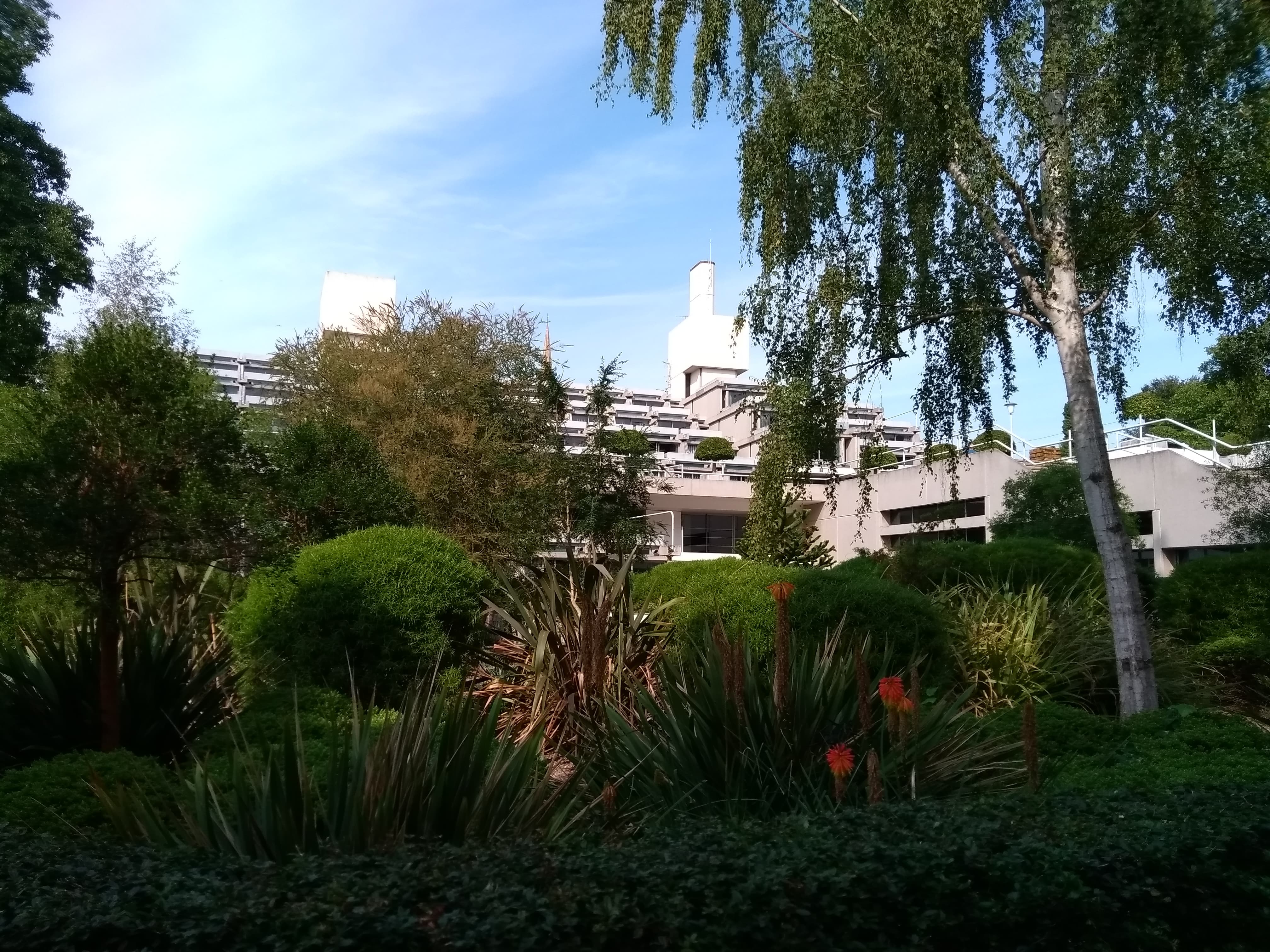
Was the interview what you expected it to be?
The interview was probably one of the best experiences I’ve had in my academic life. Going into the interviews, I was anxious about what questions I would be asked. I had heard myths about some scary and bizarre questions-which although I don’t know if they were real, they certainly weren’t the case in my interview. My interviews were at Gonville and Caius (as this is were I applied before being pooled to the amazing Christ’s College ?) but interviews are similar in all Colleges. The interviews were definitely very science oriented, some questions were straight forward A-Level material however others (the fun ones in my opinion) were a bit more demanding. For those you need some scientific intuition and some enthusiasm! I don’t think I got all of those right as they pushed me to the limits of my knowledge - however I enjoyed being pushed there! Just think about it, in your interview you are sitting in a room at your dream university, with an expert in the field of study you want to pursue, having the opportunity to talk about medicine with them! I vividly remember how excited I was before my interviews simply because I would have the chance to discuss the subject I was passionate about and ultimately learn from my interviewer. Going into the interviews with this optimistic attitude, you shouldn’t be extremely concerned about ‘getting stuck’ - just enjoy the process and show your excitement for medicine!
Did you do any work experience?
Yes - I had done work experience in hospitals and had volunteered at 'The School for the Blind' in Cyprus, as well as retirement homes. Work experience is important as it allows you to back up information and ideas you've read about with personal experience. For my interview, I also wanted to deepen my knowledge about a field of medicine I am particularly interested in, which happened to be the brain. So, I read ‘The Brain that Changes Itself’ by Norman Doidge and also completed the online course on Future Learn ‘Good Brain, Bad Brain’. In addition, given that I knew that the interviews would be very scientific, I used the summer before I applied to read ahead and understand A level Biology and Chemistry so that I was better prepared for the more demanding questions.
How did you prepare for the BMAT?
I started preparing for the BMAT during the summer before I applied. At the time I took the BMAT, the test consisted of three sections. Section 1: Aptitude and Skills which involves problem solving. Section 2: Scientific Knowledge which tests knowledge in biology, physics, chemistry and mathematics. Section 3: Writing Task which involves writing an essay.
For my preparation, I mainly used three books which included exercises in each of the sections. These were ‘Preparing for the BMAT: The Official Guide to the BioMedical Admissions Test’, ‘Get into Medical School, 400 BMAT Practice Questions’, and ‘How to Master the BMAT’. I also practiced by solving past papers from the Cambridge Assessment website, especially when it came to writing practice essays. In general, my advice would be to start preparing early on and also solve past papers. It is also important to practice some of the papers under exam time conditions.
What advice would you give prospective applicants?
It is important to be aware of all the deadlines and plan ahead. I also advise you to start early on in the summer preparing your personal statement, BMAT and interview. Make sure that you are happy with your personal statement - ensure that it is a reflection of yourself, your achievements and excitement. Overall, applying to medical school and attending the interview can understandably be stressful, but try to enjoy it as much as you can!

Before you came, what were you looking forward to and what were you most worried about?
I was definitely looking forward to making new friends and meeting new people. I was also looking forward Freshers' Fair and joining societies, as well as starting the course. At the same time I was worried about whether I would make new friends and how I would adapt to the course. Basically, the things I was most excited about were also the things I was more worried about. However, coming to university you have to be open-minded and meet as many people as possible and also be open to learn new studying techniques. Overall, it turned out that I shouldn’t have been worried! Everything ran smoothly and first year was great.
Did you find it easy to settle in?
I found it very easy to settle in, even though moving to a new country was a big change. The international freshers week which was held before the general freshers week was very helpful in making new friends who had also moved abroad and were experiencing the same things. In addition, my College family and my international sibling were very supportive. Moving into College was very easy with zero stress involved. Having someone in College from the same country as me was also really nice. The university has a large number of Cypriots and a very active Cypriot society, so in a way I wasn’t that far from Cyprus, the people were already in Cambridge with me ?
In terms of the general Freshers Week, I'd really recommend Freshers Fair - look out for that free pizza and eat as much as you can! Also, attend as many events as you can (without making yourself super tired of course), approach people and don’t be shy - everyone is nervous about making friends. Going to the Freshers Fair was definitely one of my favourite memories. I was able to talk with people in societies who had the same interests as me and I joined societies that I was very excited about. All the medics went to the fair together after the second year Christ’s medics had given us a tour of the medical lecture theatres and labs. So, it was a great way to spend some time with the people who eventually became my great friends.
I personally didn’t go to any parties or clubbing during freshers week, I was way too tired by night time after all the fun events that took place during the day. If you do want to go out, I am certain that you will find a great group of friends to have fun with. Even so, if you don’t want to go out that is perfectly fine. You will meet a lot of people and make friends either way. During freshers, just be yourself and enjoy your time.
What surprised you about starting at Cambridge, if anything?
I was positively surprised by how friendly everyone is. In a small place like Cambridge you can always feel safe but in addition to that the kindness of people makes you feel at home. It’s an overall lovely environment and even though work can be demanding, and stress levels can rise at times, walking around and seeing the people in town and my friends around College, always helped put things into perspective. The positive energy everyone has really contributed to me being very happy in my first year.
Both supervisions and lectures are very different teaching methods to those used in school. Lectures were very easy to adapt to. The lecturers were always happy to answer any questions after the lecture, so even though you are in a lecture theatre with another 300 people, you can still approach the lecturer individually at the end! Supervisions can seem daunting at first, especially given that you are in a very small group of people. Initially I was concerned about not knowing or about not understanding something. However, I quickly realised that having assignments ready on time (for example essay submissions) with additional preparation before the supervision (for example reading and understanding the latest lecture material) helped tremendously. Eventually, supervisions became a time when I could ask questions and clarify things from the lectures if there was anything I didn’t understand, with the lectures and supervisions complementing each other.
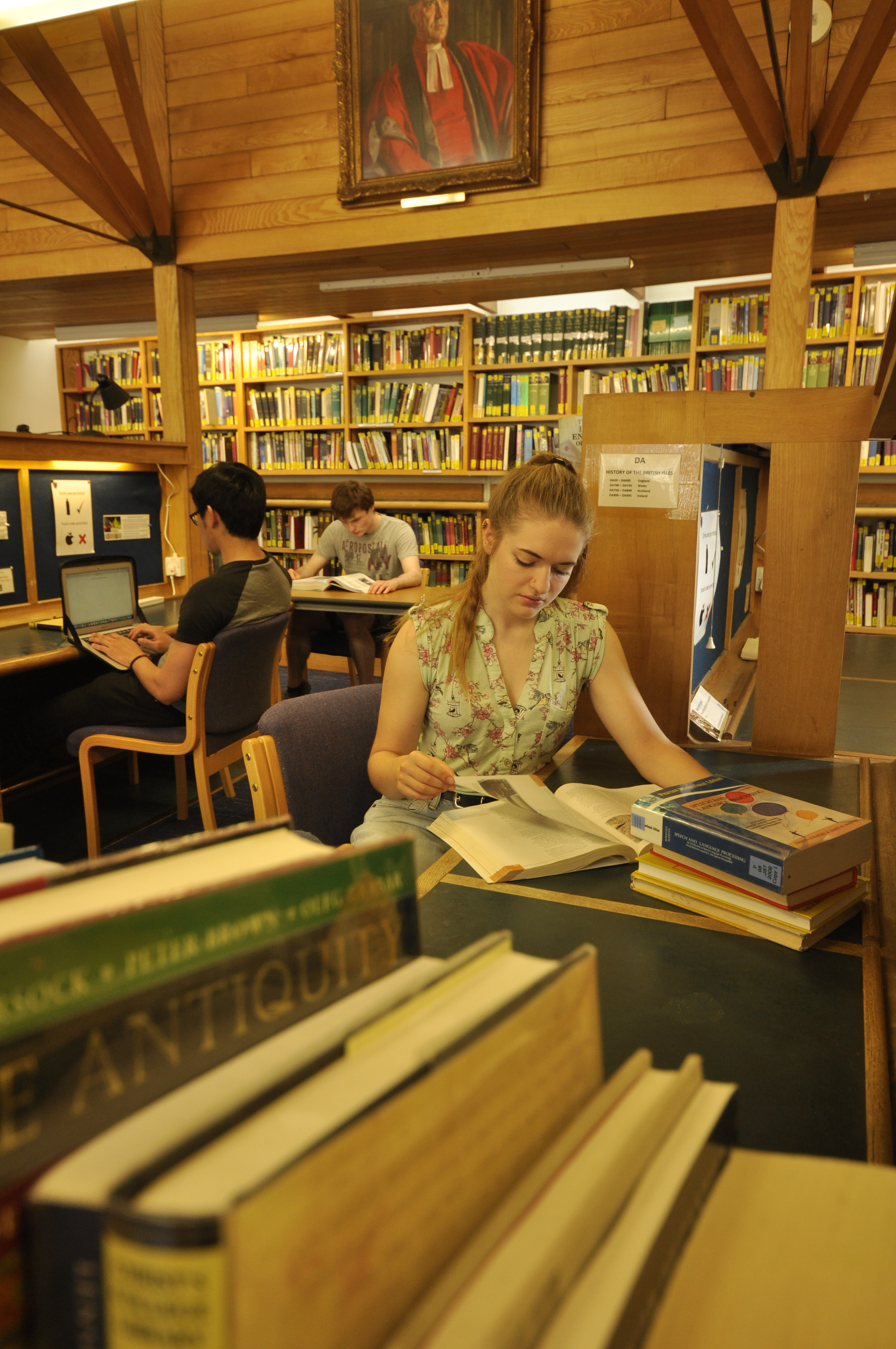
What is different with your work now, compared to what you experienced at school?
The differences are numerous. Science A-levels did not involve any essay-writing but I have weekly science essays here. In addition, we also have weekly supervisions which are a time to solidify our understanding and ask questions. The workload is also more demanding than school and I have more assignments and deadlines, but of course that is to be expected when coming to university! There is also a lot more self-study involved and the fact that lectures don’t have a record of attendance means that you must be self-motivated and self-disciplined to keep up!
What are the best and the hardest things about your course?
The best thing is the depth of science, which I find extremely interesting. It’s always nicer to understand the mechanism of action of an organ system or a molecule than simply know the consequence of it malfunctioning on the human body. The science gives you a more well-rounded understanding. The hardest part for me is the amount of things I need to memorise!! The number of details that need to be memorised at times seem impossible, but actually with consistent work, it is very much possible ?
Is the course what you expected it to be when you applied?
The course is much better than what I imagined it! When I was applying I knew that medicine is what I wanted to do, I had a good understanding of what being a doctor entailed and I knew that the process of becoming a doctor was long and difficult. Starting the course however, I quickly fell in love with it and fell in love with medicine. I was positively surprised by the work we had to do in labs, I really appreciated the time spent in dissection and I enjoyed the method lecturers used to teach. The course was also more difficult than I expected it to be, but the teaching methods used and supervisions were great help in understanding everything.
Looking back over the year, what do you feel you have got out of it?
Moving abroad and living on my own definitely helped me become more independent as well as getting to know and understand myself better. Over the year I have developed great friendships with great people. Studying this course has instilled in me an enthusiasm for medicine, determination, stamina in studying and the all-important quality of never giving up.
What has been your favourite topic from this year?
This year we studied Anatomy (FAB, which stands for Functional Architecture of the Body), Biochemistry (MIMS which stands for Molecules in Medical Science) and Homeostasis (HOM). We have also studied Histology, the Social and Ethical Context of Health and Illness (SCHI), Introduction to the Scientific Basis of Medicine (ISBM, which involves statistics) and Preparing for Patients (PfP). Personally, my favourite topic has been Homeostasis because it involves experimental evidence and explanations on the scientific thinking that led to some Nobel prizes. Homeostasis also involved the understanding of how different systems in the body work, each system being complex and interesting on its own, which made the topic varied and enjoyable.
How does your teaching work?
We have one supervision for each of our main topics weekly (these are FAB, HOM and MIMS). We also had some extra supervisions on some other topics such as SCHI and ISBM. For this course, no day is the same in terms of lectures, but most mornings we begin with a 9am lecture. We also have labs, dissection and patient visits. There is also a small Problem-Based Learning component that is part of MIMS.
I believe that good planning can ensure that you can have a good balance between work and other things (such as sports or meeting up with friends). I found that the key to managing the workload was to avoid procrastination. If I had an essay or assignment due, I would aim to complete it as soon as possible, before the deadline, thus ensuring that the work got done and I had free time. Attending lectures is also important as you will have a clearer image of the material and so the assignments will be completed faster.
I typically spend most of my 'work' time studying in my room. However, when I feel that I need some social interaction but yet have to continue studying, I head over to the College library. The place I study also depends on the time. For example, I prefer spending late nights studying in the library as that gives me a small extra push to study, unlike my room where my bed would be calling for sleep! (having said that, it is vital to balance work, socialising and sleep so that you remain healthy and happy throughout the year) ?
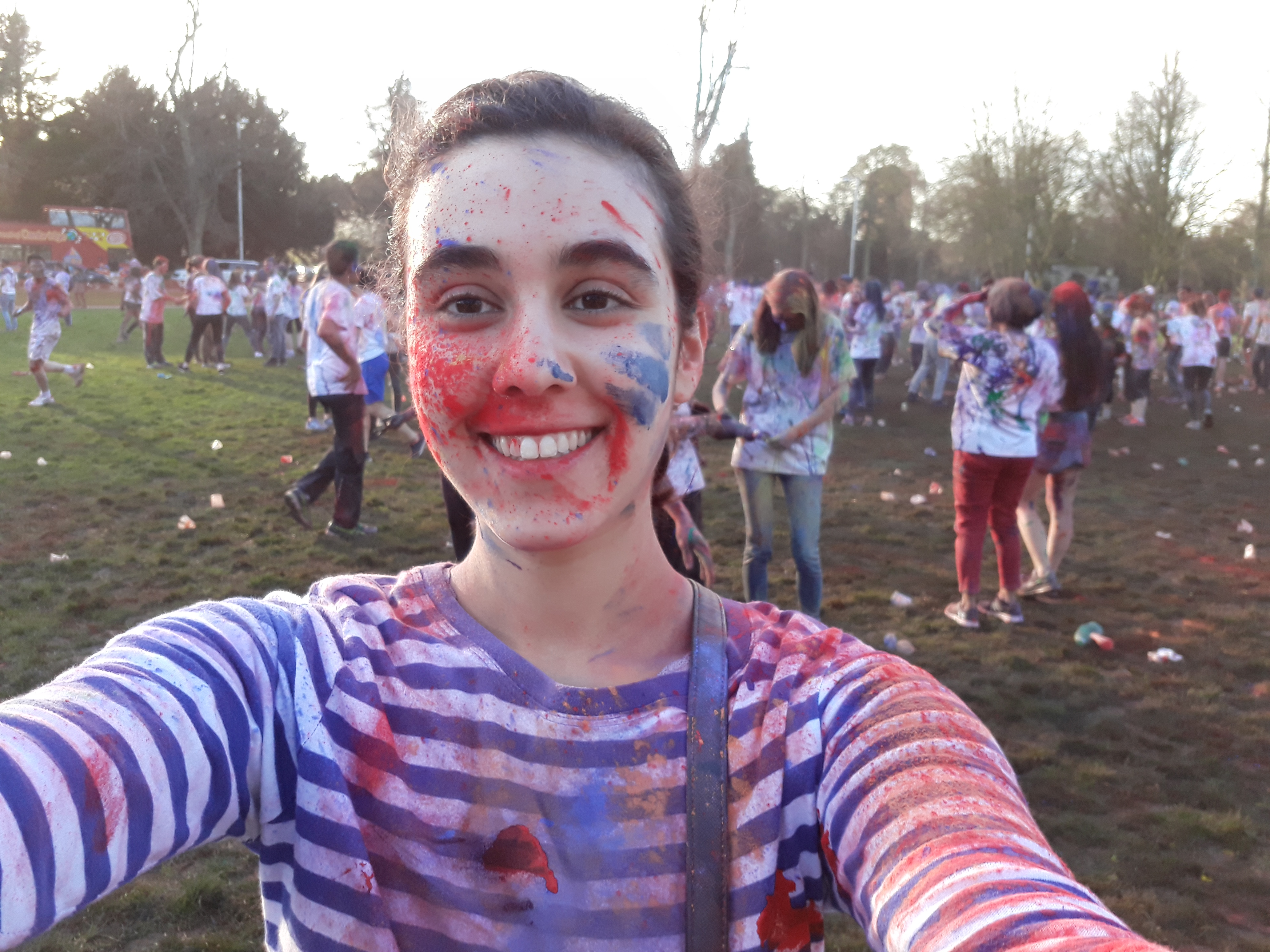
What have you enjoyed most about life at Christ’s this year?
I have really enjoyed the size of the College, it is the perfect size to get to know everyone. I am always surrounded by friends and people I can talk to. Familiar faces are everywhere, in the Upper hall, the library, the courts outside. So, my favourite part has been the people that I’ve met. My favourite thing about College is certainly the community feeling, the feeling of being at home. That, and the beautiful Fellow’s Garden where I can spend sunny days sitting on the grass and chatting with friends. I don’t think I have a least favourite, Christ’s is great!
What do you do when you’re not working?
I like taking long walks by the river listening to music, a great way to relax after a long day of work. I also go out with friends, sometimes eat with friends (and even rarely attempt to cook with them!). During the warmer seasons I like spending time in the Fellow’s Garden reading a book or having a picnic at a park. The Botanic Gardens are also a great way to relax either with friends or alone.
For the holidays, I return home to Cyprus and sometimes travel with my family. When I’m in Cyprus I like meeting up with my friends, running and catching up with family. During the short vacations of Christmas and Easter there is also studying involved, these short vacations are a good time to solidify our understanding of the material we were taught, prepare for upcoming exams and also complete assignments.
Where have you lived this year?
I lived in New Court. My room had an ensuite bathroom, I was sharing a kitchen with only another two people and we also had a washing machine and a dryer on our floor. The rooms were small but they were modern and the size was very convenient. I really enjoyed living in New Court and found that I had all I needed conveniently within reach.
Do you know which papers you’ll be taking next year?
For medicine there is no choosing of papers in second year as everyone must do all topics. These will be Biology of Disease, Head and Neck Anatomy, Human Reproduction, Mechanisms of Drug Action, Neurobiology and Human/Animal Behaviour, Preparing for Patients.
What are you most looking forward to next year?
I am looking forward to seeing my friends and hopefully starting a team sport. I am also excited about the second year of my degree and learning more medicine! I feel that I now know how the Cambridge system and university life work and so I will have less stress and will enjoy this year even more.
September 2018
Please be aware if you're considering an application that our student writers describe their experiences. Although the majority of the information stays the same, some details may change from year to year. Do read the student profiles in combination with our undergraduate admissions pages for full information.
Back to Student profiles page / Medicine at Christ's / Prospective students from Cyprus / Next: Rory's profile
